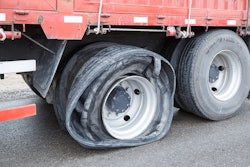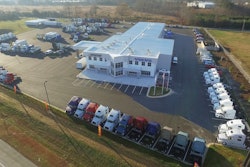Trucking news and briefs for Friday, July 29, 2022:
17 states, D.C. and Quebec release action plan to advance electric truck, bus adoption
This week, 19 U.S. and Canadian jurisdictions participating in the Multi-State Medium- and Heavy-Duty Zero-Emission Vehicle (ZEV) initiative released an action plan to help fight rising diesel exhaust pollution and greenhouse gas emissions by accelerating the transition to zero-emission trucks, vans and buses.
The coalition, which includes 17 states, Washington, D.C., and Quebec, developed the plan working through the Multi-State ZEV Task Force facilitated by the Northeast States for Coordinated Air Use Management (NESCAUM). The U.S. jurisdictions in the initiative collectively represent 43% of the population, nearly half of the economy, and 36% of the nation’s medium- and heavy-duty vehicles.
Informed by extensive engagement with a broad range of partners and stakeholders, the action plan includes more than 65 strategies and recommendations for policymakers to consider to accelerate electric truck and bus adoption, including vehicle sales and purchase requirements like the Advanced Clean Trucks regulation, vehicle and infrastructure purchase incentives, utility investment in charging infrastructure, innovative financing mechanisms, workforce development programs, and deployment of public charging in communities and along travel corridors.
The participating jurisdictions are already moving forward to implement the plan’s recommendations. In 2021, Quebec adopted a regulation requiring all new school buses to be electric. Six states – California, Massachusetts, New Jersey, New York, Oregon and Washington – have adopted the Advanced Clean Trucks regulation, which requires medium- and heavy-duty vehicle manufacturers to sell an increasing percentage of ZEVs.
California, Massachusetts, and Oregon have adopted the Heavy-Duty Engine and Vehicle Omnibus regulation to reduce NOx and PM emissions from heavy-duty trucks while the market transitions. Other states are actively working to adopt these rules, and many have set targets to transition state and municipal fleets.
The plan recommends partnerships with the trucking industry, community groups, labor groups, educational institutions and others to develop workforce training and re-training programs, and identifies key labor issues impacting workers.
GLS US expands LTL into Colorado
GLS US, a shipping company offering parcel and freight delivery services to nine states across the Western U.S., is expanding its LTL services to Colorado.
"We are incredibly thrilled to announce our expansion. The need for reliable, quick shipping services is felt across the nation, and the GLS US team is dedicated to fulfilling it in the best way possible." said GLS US Chief Operating Officer for Freight Service, Joe Bartone. "The Colorado move was a pivotal one for our LTL offering. Colorado is the gateway to the West and this expansion helps solidify our West Coast Terminal Network."
GLS US currently provides services across Washington, Oregon, Idaho, Nevada, Utah, Colorado, Arizona, and New Mexico, including Priority, Ground and Freight delivery.












